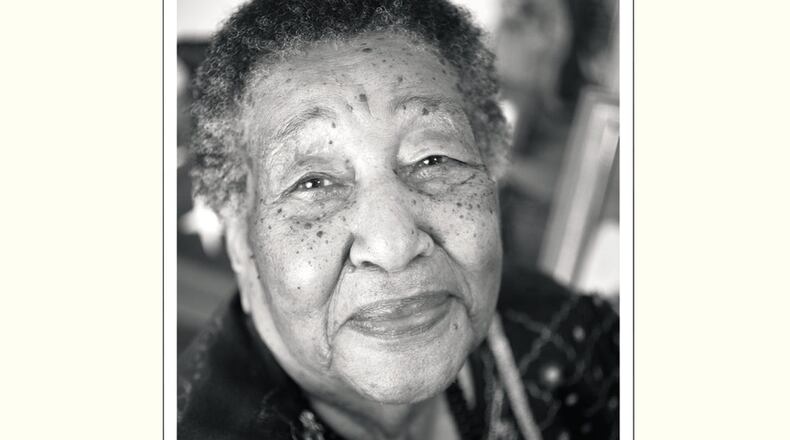Alysia Burton Steele was driving down a gravel road in Tallahatchie County, Miss. when the hairs on the back of her neck stood up.
The gravel road turned into a dirt road that kept getting narrower until there was just enough room for her 2006 silver Hyundai Sante Fe. Towering corn stalks lined one side of the road. A confederate flag was hoisted proudly outside a home across the way.
It was broad daylight, but she was still uneasy.
‘“This is still a segregated community,” said the award-winning photojournalist, who was on her way to the home of Lela J. Bearden, an 88-year-old retired home economics teacher.
"There was still a lot of racial tension," said Burton Steele, author of "Delta Jewels: In Search of My Grandmother's Wisdom." " I thought about how many blacks were killed down here and how many bodies were never found." After all, it was the same county where 14-year-old Emmett Till's mutilated body was found in 1955. Till, who was black, was kidnapped and murdered by several white men. He was taken from his uncle's home in the middle of the night after he was accused of whistling at a white woman.
Bearden is among 54 African American women — church mothers, community leaders and family matriarchs — profiled in Burton Steele’s new book. The work pays homage to her paternal grandmother, Althenia Aiken Burton, who died of cancer in 1994 at age 64.
In all, Burton Steele spent nine months and logged 18,000 miles along the back roads and highways of Mississippi. She interviewed and photographed dozens of women. The result is a moving collection of photographs and stories about women who have struggled through Jim Crow and excelled in their lives and communities.
“I never thought about taking Gram’s photograph or recording her voice when she was alive,” writes Burton Steele, who teaches at the University of Mississippi and is a former photo editor at The Atlanta Journal-Constitution. “When we’re young, we think we’re going to live forever and just assume our family will, too.”
The daughter of a black father and white mother, Burton Steele was raised by her grandmother, a former state worker and active church mother — for part of the time. “I was so blessed to have had her in my life and to have those memories,” said Burton Steele, whose grandmother called her “Peach” or “Suga.”
Theirs was a strong, loving relationship, although they initially bumped heads over Steele’s desire to study photography. “She said photography is not a real major,” Burton Steele recalled. “ ‘I need you to get a real career and a real job.’ I was miserable.” Her grandmother later came to terms with her career goals.
In 2013, Burton Steele, who grew up in Harrisburg, started thinking about the book as a way to connect with other black women of her grandmother’s generation — the Mimis, the Grams, the Grandmamas, the Other Mothers and the Meemaws.
But how to identify them? Burton Steele turned to a pastor in the Mississippi Delta for help. Who were the church mothers? She wanted women who were willing to share oral histories from which others could learn.
Convincing some of the women to talk wasn’t easy. “Women from that generation and that region are very tight-lipped,” she said. “I don’t know if it’s a cultural thing or maybe they had a painful past.”
The women profiled in the book range in age from 64 to 103. Some stories are beautiful in their simplicity: a woman standing up to a white poll worker who kept referring to Negroes as “negras” or a woman who insisted the phone company use Mrs. in front of her name as they did for married white women.
There’s Leola B. Dillard, 103, who got kicked off a plantation when she insisted her children be in the classroom when school started.
Burton Steele plans to establish scholarship fund in honor of the Delta Jewels.
As for the women, they have become celebrities of sorts back home.
“They are becoming such divas,” Burton Steele said, laughing.
About the Author
Keep Reading
The Latest
Featured



